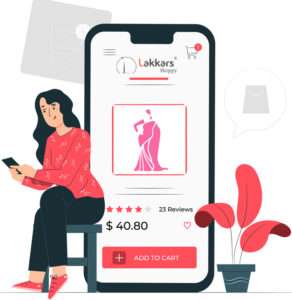I Am Not Your Asian Stereotype: One Actress Shares Her Journey in Hollywood
Candace Kita is a working actress who has been the newscaster, the judge, the doctor — and she’s been the sexy Asian babe, the masseuse, and the geisha. She’s faced producers who demanded that she adopt a cartoonish accent or lose the role. She’s dealt with presumptions that she has a kimono in her wardrobe, that she speaks Japanese or Chinese, and that she wasn’t born in America. Although Kita believes things are changing in the industry, “Asian hate is not new, at all,” she said. “Maybe if there were more Asian people portrayed in a less stereotypical light, it would be different.”
As anti-Asian attacks and hate crimes escalate, there’s also been a call to re-examine the media’s role in creating Asian stereotypes. Most recently it’s been inflamed by politics, with COVID-19 described as “Kung flu” by former President Trump and Fox News. However, film and television have a much longer history of creating roles that buy into the idea of Asians as props rather than people.
“Lovecraft Country” star Jamie Chung spoke frankly to IndieWire about the prejudice Asian performers face and how the success of “Lovecraft” gave her the confidence to pitch her own show. “Minari” Oscar nominee Steven Yeun talked to IndieWire Awards Spotlight about his gratitude for how “The Walking Dead” gave him the money to dodge obvious roles (a CIA operative, who’s good at tech!) in favour of more complex pieces like the critically acclaimed “Burning.”
Stardom will always be the exception in Hollywood. To get a ground-level view of the challenges Asian performers face, we went to an actress who’s still reading her agency’s breakdowns in search of roles that call for Asian Female. A fifth-generation American who was raised in Texas and is the granddaughter of Manzanar survivors, Kita’s credits include roles on “Crazy Ex-Girlfriend,” “It’s Always Sunny In Philadelphia,” and “Raising Hope,” but she is an expert on the expectations Hollywood places on its Asian actresses. Kita spoke to the magazine by phone and by email.
This interview has been edited and condensed from two conversations.
What was the first time that stereotypes seeped into the audition process?
My agents and my managers were really great about getting me out, but the opportunity was not as great for minority actors when I started. One incident that surprised me — I asked my agent what to wear, and they said, “Wear your kimono.” I said, “What kimono?” And they replied, “The one in your closet.” Would someone automatically assume a person who was [Latino] would have a sombrero and poncho? Or someone who is African-American have a tribal costume? It was assumed that I would automatically have a kimono stashed deep within the recesses of my closet.
I got really lucky with my first job, on a show for FOX Kids, “Masked Rider.” I did 40 episodes as a series regular lead, as a mom. At the time, we were billed as “FOX Kids’ first multi-ethnic family.” In the actual show, there was no reference to why I was Asian, which was nice, and my three children were adopted. FOX portrayed us like any other family and the emphasis was on what really makes a family unit: kindness, being supportive, and love.
I see many, many more roles that are “any ethnicity” in the breakdowns now. I see multi-racial families more on television and in film. As an actor, my partner and I are asked to go to more multi-ethnic couple auditions in the past few years. I love casting calls that are “any ethnicity.” Why does there always have to be an explanation as to why I’m Asian? Why can’t I simply be the next-door neighbor, a mom, a lawyer, or someone you happen to know who just happens to be Asian?
One audition — it’s actually a well-known show — I worked with a producer who was really difficult. I don’t want to say the name. It was a primetime network show; everybody knows it. I got a guest star on the show, doing the audition and callback with no accent. After I booked it, they changed it so that I have a thick accent. When I came to the cast read-through, I found out. They were almost going to fire me and cast somebody else because my accent wasn’t “believable enough.”

Do you remember the first Asian character you saw on screen?
The first person I remember taking notice of — I was probably in middle school — is Connie Chung doing “Nightly News.” [She] was the only Asian person that I saw on TV that looked like me. Not seeing people that look like me, or had my background at all, was the norm.
“Breakfast at Tiffany’s” was one of my favorite movies, [but] I saw Mickey Rooney [as] Mr. Yunioshi. I remember thinking at the time, when I was a kid, “This is not me. I don’t know anybody that’s this way. I don’t have huge Coke-bottle glasses. I don’t have huge teeth. I don’t have super squinty eyes. I don’t talk that way. Nobody in my family speaks that way.”
It was supposed to be okay even though it was very, very hurtful. I was just perplexed. I’m fifth-generation American. I don’t have an accent like that. People that I know from Japan don’t sound like Mr. Yunioshi. And yet everybody [said], “Candace, you’re taking this way too harsh. You have to have a sense of humor. You need to lighten up.” I [thought], Am I the only person that is truly upset by this? It’s degrading. Is this what you think of me? It’s some kind of weird brainwashing for others to think this is the way Asian people are.
Jamie Chung has talked about the sexualization of Asian women in her roles. Is that something that you’ve experienced, whether on-set or in auditions, that because you’re an Asian woman there is an allowance of more sexualization for you, as opposed to a white actress?
It’s a fetishization. People have these certain presumptions about Asian women, that [Asian women] are subservient, that they’ll do anything, that they’re easy, that they will basically be your love slave. Sometimes you do see that in roles, as well. If you’re a young Asian woman in your 20s and 30s, you’re cast as a masseuse, somebody who works in the nail salon, or a prostitute — somebody who’s very subservient and quiet. As you get older, you’re the Mamasan in a brothel. Or maybe you somehow get elevated to be the owner of the nail salon. A lot of these women are depicted, as they’re older, as crabby or cantankerous. I think it’s changing. I choose to think positively about it.
Some minority actors have said they won’t take roles they feel are not positive depictions. Is that something that you can do? Have you turned down something that you might have really wanted to do that was stereotypical?
I’ve been in the business for almost 30 years. I have played a masseuse, and I have played people with accents. These roles were the roles that were available. Just being an actor, and surviving as an actor for almost three decades, people have to understand that I’ve been lucky to get some of these roles. There’s that business aspect of it, too. I don’t know if we’ve had the luxury, as actors with so few roles being offered to us in the first place, to say, “I’m not going to do this.” For people who say, “I’m never, ever going to take a role where I play a manicurist,” it just depends. If it’s a really funny manicurist in a great role, I may take that role.
There’s the belief that representation, even if it’s bad, is better than none at all. Do you subscribe to that theory?
That is a quandary because, yes, you’re on TV as a minority actor. People are seeing you [and] in a way that’s better than not being seen or having a voice at all. The flip side is, how do you want to be portrayed? How do you want to be seen? I grew up in the Deep South in the 1970s. I have probably heard every single racist term that there is. Maybe if there were more Asian people portrayed in a better light at that time, it would be different. I’ve had really painful terms [thrown] at me like chink, and Jap, and slopehead, all these really horrible words. They didn’t come up with these terms and these ideas. They became hateful toward a group they really knew nothing about.

The history of cinema is about actors who, because of their race, were not able to do the work they wanted.
Going back in time to Sessue Hayakawa. He was one of the first silent actors from Japan, and he was always portrayed as the villain. Even as late as, I want to say the ’50s or ’60s, he played the bad guy, over-accented and heavily made-up to make him look villainous. Hayakawa was one of the few people I remember seeing on TV who was Japanese.
I’m thinking back to all the throwaway jokes I’ve heard in TV and film about Asian porn sites or jokes about Asian women. They’re such cavalier moments of racism.
You hit the nail on the head; it’s so cavalier. Many times I’ve been walking to the studio lot from my car, not looking fancy, shuffling along in flats, completely covered up, and somebody rolls down their window to say, “Me so horny. Me love you long time,” and then a bunch of snickering and laughing. It’s racism mixed with misogyny.
Asian hate is not new, at all. Because of World War II, there was so much anti-Japanese sentiment. My grandparents [went to] Manzanar. They were American; they were born here. My grandparents used to tell me all the stories of the anti-Japanese sentiment right after the war. Asian hate has always been around; it’s just been under the surface. I don’t wake up every day and say, “Oh, I’m Asian.” But sometimes the way people react to me is a constant reminder.
With many minority women, there’s a fear of advocating for themselves because it’s easier to get labelled difficult. Is there a hesitation when it comes to advocating for yourself?
I’ve always been an advocate for myself. As I’ve gotten older, I always say time-appropriate bitchiness is a good thing. I stand up for myself more, and it has nothing to do with what are people gonna think. I am less tolerant of racism and I’m less tolerant of sexual stereotypes. I’m less tolerant of the stereotypes that people have of Asian women. When people approach me in my everyday life, I just have less patience for it. It wears on me. I have a short fuse, as far as that’s concerned.
What do you think studios, creatives with privilege, audiences should be doing to combat racism against Asians and the stereotypes that we’re still seeing on screen?
Decent roles. There needs to be roles out there for Asian people. Not a prostitute, not a masseuse. You need to write roles about real people in America today. You have the power to create characters who are real and compelling. I think it will be great if the studios do away with the stereotypes. They don’t even realize sometimes that there’s no humor in making fun of another person based solely on their race.
When there’s a time when there’s no need for this type of interview, great. That’s when I think there’s going to be a success.

Magazine launched for helping women for success. Lakkars has always served and worked efficiently towards women empowerment, we have blossomed into America’s most-read fashion magazine.


